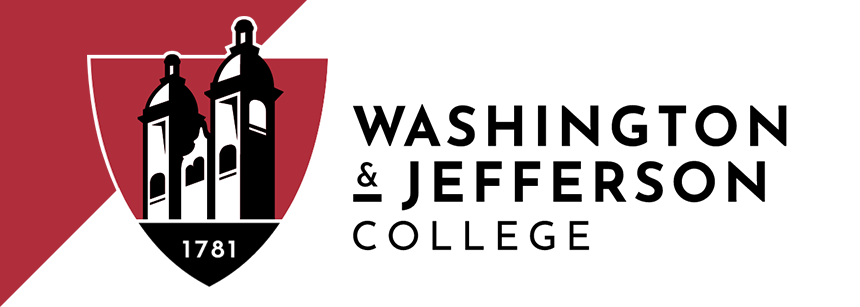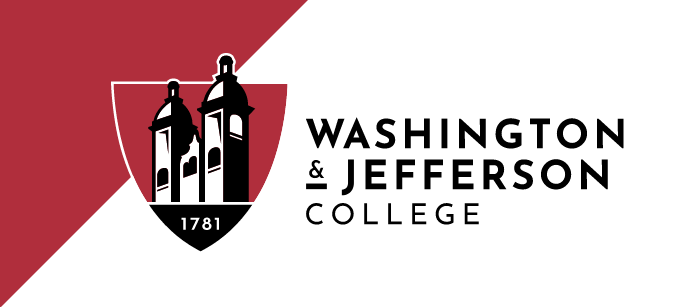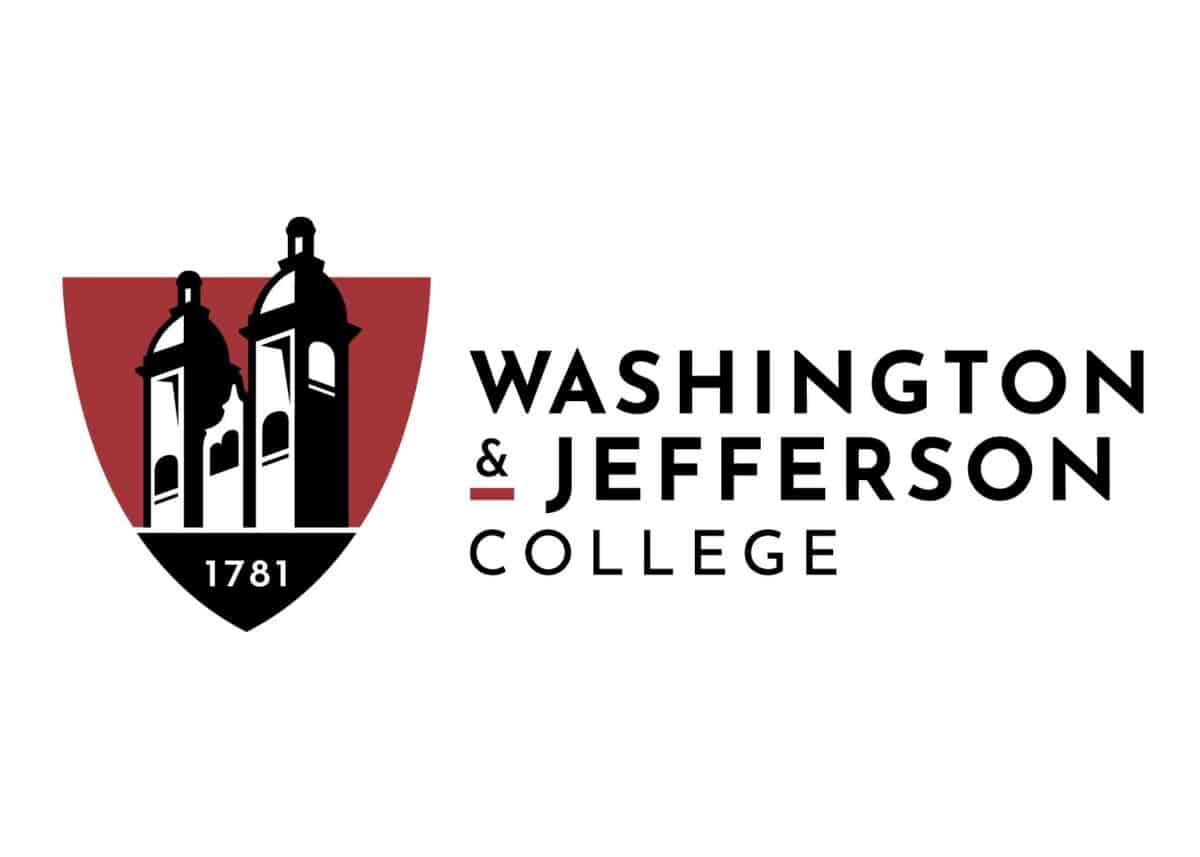In today’s political climate, feeling divided may be one thing most people can agree on.
It takes courage to sit down with those who don’t agree with you and have a civil discussion. With the rise of social media and pervasiveness of opinionated news providers the past few decades, it’s easier than ever to find platforms which reinforce your own opinions and disparage those who hold opposing viewpoints.
— JOHN C. KNAPP, PH.D., PRESIDENT AND PROFESSOR, WASHINGTON & JEFFERSON COLLEGE
Through its theme of “Courageous Conversations: Civil Discourse in Divisive Times,” the second annual Symposium on Democracy, an initiative of W&J President John C. Knapp, Ph.D., reinforced the uncommon integrity reflected throughout W&J’s history and the importance of working together, no matter your point of view.
On Presidents Day, February 18, 2019, the W&J community came together to host the second annual Symposium on Democracy. The event, which was generously funded by the Guy Woodward Jr. ’40 Foundation, brought faculty, staff, students, and community members together to discuss how to have civil discourse around challenging subjects.
Three nationally-known keynote speakers, Kathleen Kennedy Townsend, Kerwin Swint, and Robert Shetterly, came to campus to offer a look at divisive times throughout history.
Kennedy Townsend, the eldest child of the late Sen. Robert F. Kennedy, kicked off the day in the morning keynote session, where she spoke about her father and the courageous conversations he had during the Civil Rights movement of the 1960s.
She touched on how her father dealt with difficult moments and audiences, including a speech he gave in Indianapolis just after Martin Luther King, Jr. was assassinated.
“For those of you who are black and are tempted to be filled with hatred and distrust of the injustice of such an act, against all white people, I can only say that I feel in my own heart the same kind of feeling. I had a member of my family killed (his brother John F. Kennedy, Jr.), but he was killed by a white man,” Robert F. Kennedy said in that speech. “But we have to make an effort in the United States… to understand, to go beyond these rather difficult times.”
“What we need in the United States is not division; what we need in the United States is not hatred; what we need in the United States is not violence or lawlessness; but love and wisdom, and compassion toward one another, and a feeling of justice toward those who still suffer within our country, whether they be white or they be black,” Robert F. Kennedy continued.
Kennedy Townsend reflected on how her father was warned against giving the speech that day and of the risks of
“For those of you who are black and are tempted to be filled with hatred and distrust of the injustice of such an act, against all white people, I can only say that I feel in my own heart the same kind of feeling. I had a member of my family killed (his brother John F. Kennedy, Jr.), but he was killed by a white man,” Robert F. Kennedy said in that speech. “But we have to make an effort in the United States… to understand, to go beyond these rather difficult times.”
“What we need in the United States is not division; what we need in the United States is not hatred; what we need in the United States is not violence or lawlessness; but love and wisdom, and compassion toward one another, and a feeling of justice toward those who still suffer within our country, whether they be white or they be black,” Robert F. Kennedy continued.
Kennedy Townsend reflected on how her father was warned against giving the speech that day and of the risks of violence and rioting that were breaking out across the nation that evening. That night, Indianapolis was one of the few cities that did not break out in riots.
Kerwin Swint’s lunchtime address was a reminder that political campaigns have always had their less than civil moments. As part of Admission’s Presidents Day Open House, prospective students and their parents were able to participate in Swint’s lunchtime talk.
As the author of “Mudslingers: The 25 Dirtiest Political Campaigns of All Time,” Swint gave an unapologetic look at some of the dirtiest political campaigns in the United States and how evolving media has affected the way these campaigns are seen by the public.
In his talk, Swint highlighted the presidential campaign of alumnus James G. Blaine, Class of 1847, Washington College, who started his political career in the Maine legislature before moving to national offices in the House of Representatives (1863-76), Speaker of the House (1869-75), and Senate (1876-81). He also served as Secretary of State under three separate presidents before running against Grover Cleveland in the 1884 presidential election. The tactics used by both Cleveland and Blaine during the campaign earned the duo a spot in Swint’s book.
The day wrapped up with an evening talk by Robert Shetterly, an artist best known for his portrait series, “Americans Who Tell the Truth.”
Shetterly shared how he began his series, shifting his work from surrealism to portraiture as a reflection of his feelings about the lack of truth in politics in the early 2000s. He was looking for something to relieve his anger and spotted a Walt Whitman quote on his studio wall.
This is what you shall do: love the earth and sun and the animals, despise riches, give alms to everyone who asks, stand up for the stupid and crazy, devote your income and labor to others, hate tyrants, argue not concerning God, have patience and indulgence toward the people, take off your hat to nothing known or unknown.
— WALT WHITMAN
“I read that quote and thought, ‘Oh, I know what I’ll do. I’ll paint his portrait.’ And my next thought was, ‘I’ll feel better,’” Shetterly said.
After he spent several days researching Whitman, he painted the portrait and scratched the quote into the surface of the painting. He did feel better.
“That was pretty good for a couple of days and then I started to rant again. My wife looked at me one day and said, ‘Why don’t you paint another portrait?’” he continued.
Shetterly started with the goal of painting 50 portraits, but now has surpassed that goal, painting more than 235 pieces for the series. Thirty-six of his portraits were displayed throughout W&J’s campus for two weeks following the event, and Shetterly also remained on campus for a few days and spoke with several art classes.
In addition to the keynote presentations, the symposium hosted breakout sessions featuring faculty, staff, students, and local guests around subjects such as climate disruption, activism, and the role of news and social media in today’s conversations.
Students from both the Conflict & Resolution Studies program and Student Government Association hosted breakout sessions. Professor of Mathematics Robert Muth, Ph.D., presented “The Mathematics of Gerrymandering,” using his academic background to take a closer look at a politicized process.
The Washington Fellows hosted their spring TOMTalks, where students give a short talk in the style of TEDTalks. SGA and BSU president Carmen Carroll ’19, Brooke Bova ’21, and Arianna Taylor ’22 were chosen to speak about the theme of courageous conversations.
W&J President John C. Knapp, Ph.D., announced next year’s theme as democracy on a global scale. Events for next year will be posted on washjeff.edu/democracy as they are finalized.
Please plan to join us on Presidents Day, February 17, 2020, for the third annual Symposium on Democracy.
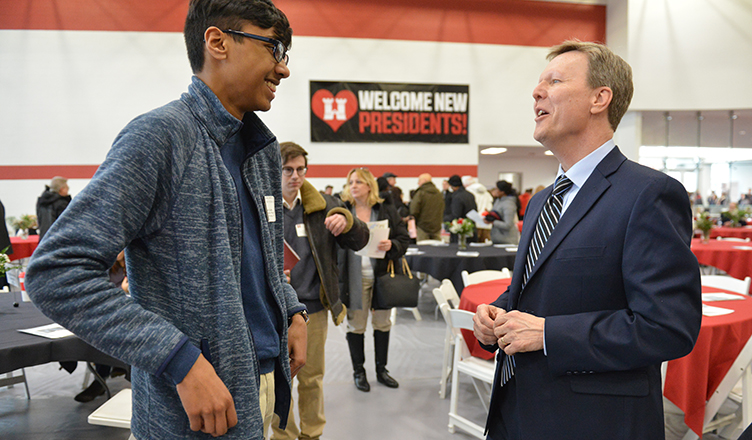
That’s the part about these eras of ill feelings and raw emotions… It almost always ends up in a time where people do come together.
— KERWIN SWINT, AUTHOR OF “MUDSLINGERS: THE 25 DIRTIEST POLITICAL CAMPAIGNS OF ALL TIME,” PROFESSOR OF POLITICAL SCIENCE AT KENNESAW STATE UNIVERSITY

I think it’s a much richer country when we can show compassion and love towards each other and still fight for justice.
— KATHLEEN KENNEDY TOWNSEND, ELDEST CHILD OF THE LATE SEN. ROBERT F. KENNEDY, FORMER LIEUTENANT GOVERNOR OF MARYLAND
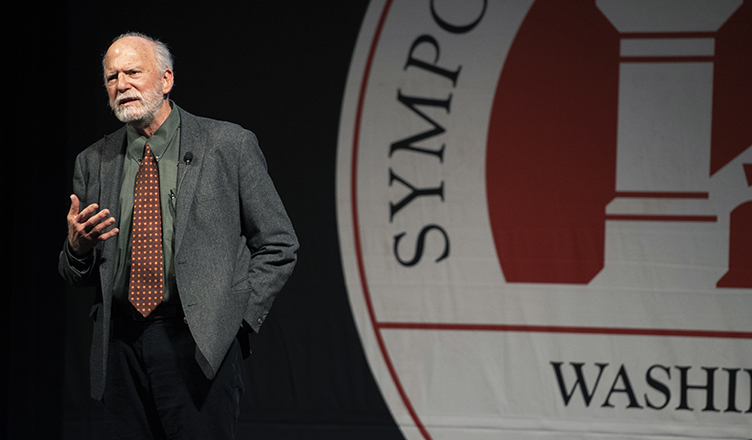
…You know when something isn’t fair and you know when something is unjust. The question is how far are you going to pursue it.
— ROBERT SHETTERLY, ARTIST KNOWN FOR PORTRAIT SERIES “AMERICANS WHO TELL THE TRUTH,” PRESIDENT OF THE UNION OF MAINE VISUAL ARTISTS
